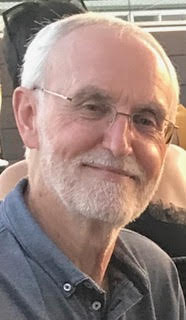
It is with deep sadness that I am writing to let you know that previous SISR/ISSR President James A. Beckford passed away peacefully at the age of 79 last Tuesday May 10th in the company of his wife Julie and their three children.
Jim was a Fellow of the British Academy and a long-standing member and supporter of SISR/ISSR. He first joined SISR/ISSR in 1973 and served as President from 1999 to 2003. He had a PhD in sociology and his teaching and research took place at both sides of the Atlantic: the universities of Reading and Durham in the UK, Berkeley in California, Loyola in Chicago, École des Hautes Études en Sciences Sociales in Paris, and the École Pratique des Hautes Études in Paris. He came to University of Warwick in 1989, where he remained until he became emeritus in 2008.
In addition to serving as President of SISR/ISSR, Jim was also elected President of the Association for the Sociology of Religion (1988-89), Vice-President of the International Sociological Association (1994 – 1998), and President of the Society for the Scientific Study of Religion (2010-11). In 2014, he was awarded Docteur ès Sciences des Religions honoris causa at University of Lausanne, and in 2017 he received the Lifetime Achievement Award for Association for the Sociology of Religion.
Jim worked within several areas in the sociology of religion. He began his career with his doctoral thesis on the Jehovah’s Witnesses, which was published as The Trumpet of Prophecy. A Sociological Analysis of Jehovah’s Witnesses (1975). He continued to research new religious movements and their response from society, as seen in the books Cult Controversies: The Societal Responses to New Religious Movements (1985) and New Religious Movements and Rapid Social Change (ed., 1986). Another topic in his research was religion in prisons, with a particular focus on Muslim inmates, which resulted in the books, Religion in Prison (with S. Gilliat, 1998) and Muslims in Prison: Challenge and Change in Britain and France (with D. Joly and F. Khosrokhavar, 2005). His work in this area inspired research in several countries.
Jim was well versed in sociological theory and a recurrent theme in his work was to call sociologists of religion to end their isolation from other disciplines in sociology and engage with sociological theory. He explored various sociological theories and the ways in which they could be applied in the sociology of religion in several books: Religion and Advanced Industrial Society (1989), The Changing Face of Religion (with T. Luckmann, 1989), Social Theory and Religion (2003), and Theorising Religion: Classical and Contemporary Debates (with J. Walliss, 2006). Jim also edited Secularization, Rationalism and Sectarianism (1993 with E. Barker and K. Dobbelaere, 1993), Challenging Religion: Essays in Honour of Eileen Barker (with J. T. Richardson, 2003), The SAGE Handbook of the Sociology of Religion (with N.J. Demerath III, 2007), and Migration and Religion (ed., 2015). In addition to these books, he published about 150 articles. Jim’s contribution to the sociology of religion was unique, as he managed to combine theoretical discussions and insights with empirical research. It has inspired a whole generation of sociologists of religion and will continue to do so in many years to come.
I got to know Jim at the SISR/ISSR meeting in Budapest in 1993, when he agreed to co-supervise my PhD thesis. He was an excellent supervisor, who shared from his extensive knowledge of sociological theory and work in the sociology of religion. Jim also built community. He was exemplary in the ways he helped young scholars, and he introduced the students he supervised to each other and worked hard to connect all of us by keeping us updated on what was going on with the others. Yet, he was not just a supervisor, but a wonderful colleague and a mentor of life who became a friend and a friend of our families.
Jim was a great scholar who contributed significantly to the development of the sociology of religion and the sociologists of religion community. He was fun and generous, and simply a nice human being. He will continue to inspire our work and for all of his professional and personal contributions, he will be profoundly missed.
Inger Furseth









